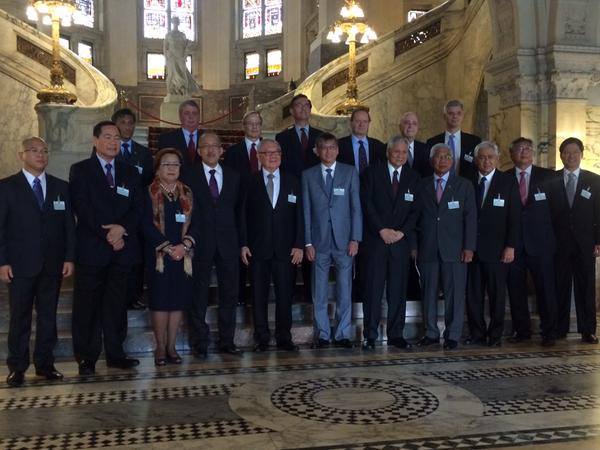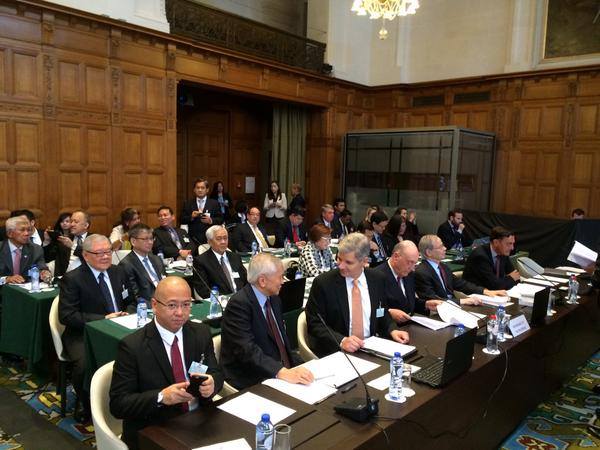Breaking
PHL asks tribunal to assume jurisdiction on its case vs China

The Philippine delegation, with lawyers and advocates, before the start of Commencement of the 1st Round of Philippines Argument. The delegation will be presenting its case regarding the matter of jurisdiction before the Arbitral Tribunal (PCDSPO)
MANILA — Philippine officials, backed by international law experts, began arguing that China’s nine-dash line claim of virtually the entire South China Sea is invalid.
The Philippines presented on Tuesday the arguments for the Philippine position, with emphasis on the tribunal’s proper jurisdiction to hear and decide the case, a Foreign Affairs statement said on Wednesday.
First to speak for the Philippines on the first day of the oral arguments on July 7 was Solicitor General Florin Hilbay, who introduced the case and presented the order of speakers for the Philippines.
Hilbay was followed by Foreign Secretary Albert del Rosario, who explained the reason for the Philippines’ decision to seek arbitration in the current maritime dispute with China.
In his statement, Del Rosario asked the tribunal to recognize its jurisdiction because of the importance of the case, “not only to the region but to the entire world, and its impact on the application of the rule of law in maritime disputes.”
The chief counsel for the Philippines, Mr. Paul Reichler of the US-based Foley Hoag law firm, then presented the justification for the tribunal’s jurisdiction over the Philippine claims under the United Nations Convention on the Law of the Sea.
UNCLOS, a 1982 treaty signed by 163 states including the Philippines and China, allows coastal countries the right to explore, develop and exploit areas within its designated 200-nautical exclusive economic zone or EEZ.
China is accused by the Philippines of violating the law with its nine-dash line claim that encroaches on the maritime sovereignty of its neighbors.
The 2012 standoff between the two states at the Philippine-claimed Scarborough shoal prompted Manila to bring its disputes with China to an arbitral tribunal.
Scarborough, which is within the Philippines’ exclusive economic zone, is now under Chinese control.
China, which did not participate in the proceedings, said issues of sovereignty and maritime delimitation are beyond the scope of the tribunal’s jurisdiction.

The high-powered Philippine team for the UNCLOS arbitration case being heard by an arbitral tribunal in The Hague has begun presenting the arguments for the Philippine position—with emphasis on the tribunal’s proper jurisdiction to hear and decide the case (PCDSPO)
Foreign legal experts dismissed China’s assertion in the hearing as they explained how the Philippines’ claims did not raise questions of sovereignty over land or raise questions of maritime delimitation.
For the second day of the oral arguments, the Philippines’ lawyers will further explain how the Philippine case did not fall under the specific UNCLOS exemptions which would preclude the tribunal from hearing the case.
They will also present strong arguments regarding the strength of the Philippines’ environmental and fishing claims against China, which has embarked on rapid and massive reclamation of formerly submerged reefs and transformed them into artificial islands. Manila said such activities have damaged the marine bio-diversity and ecosystem of the South China Sea.
The Philippine legal team is expected to summarize the Philippines’ case and reply to questions to be raised by the tribunal before the oral arguments conclude on July 13.





















